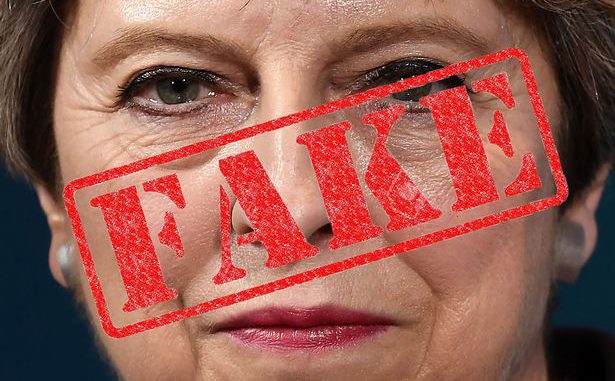
The UK Government has announced plans to create dedicated units to counter so-called fake news on social media
A National Security Communications Unit will counter propaganda from foreign states.
‘Others’ spreading fake news will also be targeted.
The units will answer to the Cabinet Office and aim to “deal quickly with disinformation” on social media, in order to “reclaim a fact-based public debate,” according to government spin-doctor Alex Aiken.
“The Government is committed to tackling false information and the Government Communications Service plays a crucial role in this,” a Cabinet Office spokesperson told Sky News.
“Digital communications are constantly evolving and we are looking at ways to meet the challenging media landscape by harnessing the power of new technology for good.”
Defence secretary, Gavin Williamson, announced that their targets will include both “state actors and others” – others presumably being anyone who manages to cause an impact with a fake news story from overseas or domestically.
Indeed, according to The Times, the plan was conceived after a number of false stories were shared online that were damaging to the government and Conservative Party.
One story the government recently branded fake news claimed the Tories had voted to deny that animals could feel pain. In reality, animals are already classed as sentient beings in UK legislation and the vote was to remove that part from the EU Withdrawal Bill – the mechanism by which applicable EU law is being transposed it into UK law as part of Brexit.
Another story claimed that there had been a D-Notice on reporting about the Grenfell Fire in an attempt to cover up the true death toll and other details … It wasn’t true.
Did Russia Hack Brexit?
The team focusing on fake news spread by ‘state actors’ like Russia will be named the ‘National Security Communications Unit.’
According to Gabriel Milland, former deputy director of Government Communication Service: “What the UK is basically doing here is catching up with several of our NATO allies, which already have impressive ‘war rooms’ that monitor incoming information operations aimed at destabilisation.”
One concern is that Russia meddled in the EU referendum vote by pushing for Brexit on social media. However, when recently asked for proof of this by a government Select Committee, Twitter head of public policy Nick Pickles admitted that there isn’t “sufficiently strong evidence” linking 13,493 pro-Brexit accounts to Russia, as only “1% of the accounts in the dataset were registered there.”
He added: “Our findings echo those of the Oxford Internet Institute that concluded in a report published in December 2017: ‘In our investigations of Twitter conversations associated with highly automated accounts we found little evidence of links to Russian sources’.”
Oddly, in response to this Chairman of the ‘Department of Digital, Culture, Media and Sport Select Committee,’ Damian Collins, said: “I’m afraid that the failure to obtain straight answers to these questions, what they might be, is simply increasing concerns about these issues, rather than reassuring people.”
… Not getting straight answers, or simply not getting the answers he wants?
Meanwhile, Facebook’s head of policy in the UK, Simon Milner, says the company is also attempting to verify claims that its platform was used to influence Brexit.
Facebook has already conducted an internal investigation on the orders of the UK Electoral Commission into a network of accounts tied to Russia last year, which were alleged to have spread fake news in the US. It quite humorously concluded that accounts spent only $0.97 (70p) on ads that reached just 200 people in Britain.
“This amount resulted in three advertisements (each of which were also targeted to US audiences and concerned immigration, not the EU referendum),” said the report.
On 8 February, the committee will welcome Google, Facebook, and Twitter, to give further evidence about the overall fake news problem.
Big Sister is Watching
The government’s new fake news strategy is still in its planning stages and it’s not known how it will function from a technological standpoint.
They obviously won’t be able to remove so-called fake news posts without unprecedented (and arguably overreaching) partnerships with the social media sites, so their role may simply be to identify such posts as they occur and counter them with official government statements, while perhaps asking (rather than dictating) the sites to remove them. How effective that might be is yet to be seen.
Following the Snooper’s Charter, which made Britain the most spied-on democracy in the world, is this just the next step in Theresa May’s agenda for further control of the internet? If we’ve learned anything from the fake news era it’s that those with opposing views like to brand each other fake news regardless of the facts. Will the government abuse the system by labeling its opposition fake news?
The democratic failsafe to this would be the badge of honor and rallying cry of censorship that such actions would create.




